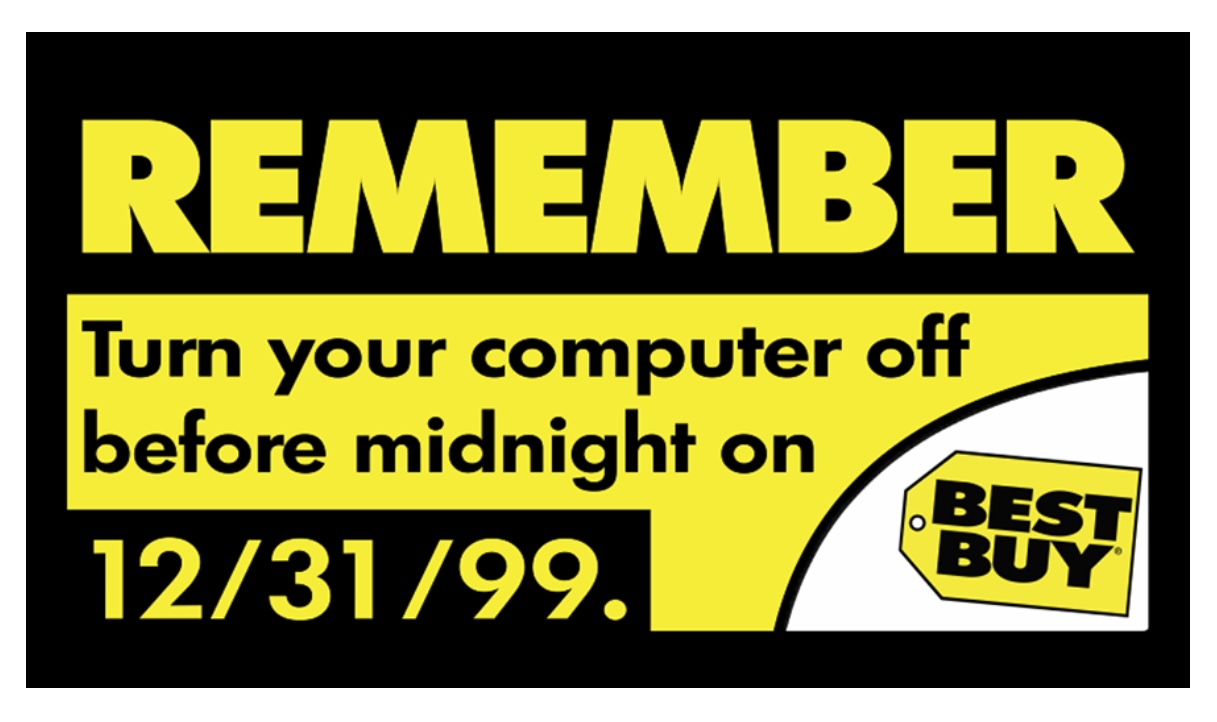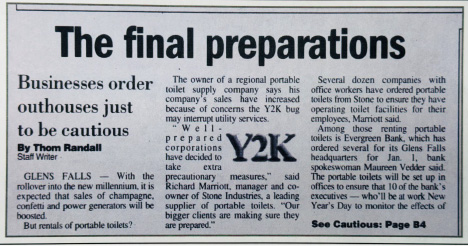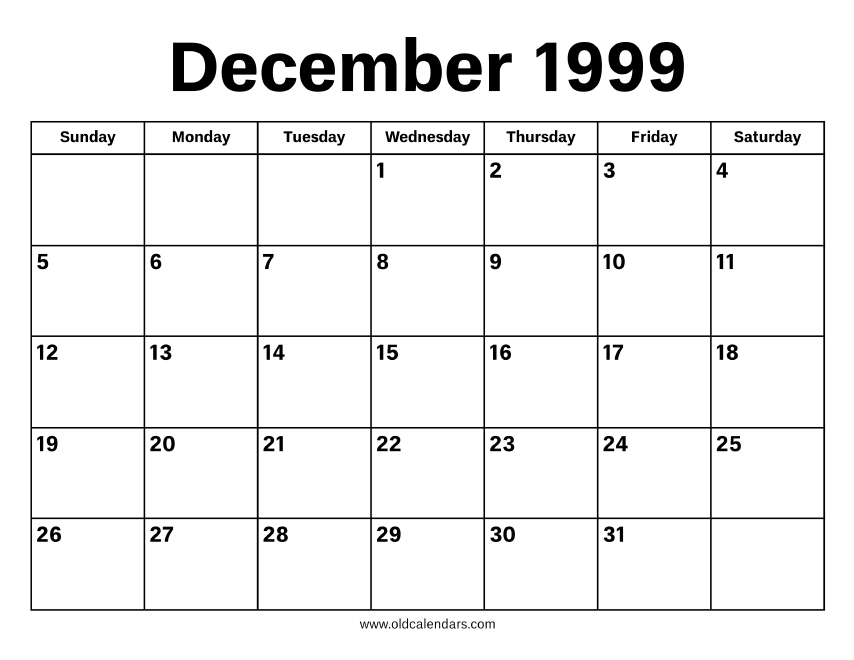Portable Sanitation Was a Hot Commodity 25 Years Ago This Month
25th Anniversary of Y2K: Our Industry Was Needed Then
What Was Y2K?
The computer age had its beginnings in the 1970s, steadily grew in the 1980s, and rapidly expanded in the 1990s. With this growth, complications arose—none more ominous than the calendar turning from 1999 to 2000. With the millennium changing dates from the 1000s to the 2000s, how would computer systems and programs function in this new date format?
The year 2000 was dubbed “Y2K” and December 31, 1999, was the last date of certainty as to how computer-supported power grids, financial systems, aviation control, and myriad other systems would function.
Why the Uncertainty?
“Y2K date format fears" referred to the widespread anxiety that computer systems would malfunction at the turn of the millennium (the year 2000) due to the then-common practice of storing dates using only the last two digits of the year, meaning "00" could be misinterpreted as “1900” and data after that time would be invalid and possibly deleted. Another possibility was that “2000” might not be recognized and systems would either shut down or produce errors due to an unfamiliar date. Further, many computer programs at that time used the binary system of programming using the combination of 0s and 1s. On January 1, 2000, the binary combination of the date could also cause potential problems as it would read “01/01/00” which could also create havoc.
Potential consequences based on these fears included:
- Widespread power outages
- Banking system failures
- Transportation disruptions, including the airline system
- Disruption of the supply chain for food and water
- Loss of data—from healthcare to governmental records
- Military data for command and control
- Worldwide panic
The Y2K scare led to significant global efforts to identify and fix affected systems before the year 2000, with governments and businesses investing heavily in upgrades and code modifications. According to Britannica.com, in 1998 the United Nations held the first Y2K Conference to share information and to suggest solutions. Some $300 billion was spent on a worldwide basis to work on this problem, with half of that amount being spent by the U.S.
As the Calendar Turned Toward December 1999
- The CBS Evening News on August 17, 1999, reported that the U.S. Treasury began printing an extra $50 billion for “Y2K emergencies.”
- Computer and electronics companies sent warning messages, such as this one from Best Buy:

- Newspapers, state and local governments, and other media outlets produced lists of items for people to stock up on “just in case.” Here are the most common items listed:
-
- Cash
- Bottled water
- Non-perishable food
- Paper plates, cups, and utensils
- Flashlights and extra batteries
- Candles and matches
- Battery-powered radio
- Camping stove
- Personal hygiene items
- First Aid kit
- TOILET PAPER
Impact on the Portable Sanitation Industry
The fact that toilet paper was an item to be “kept in adequate supply” is an excellent transition to the consequences of Y2K on our industry.
Reports came from two parts of the world where there was “a run on portable toilets.” The most reported case was in Glen Falls, New York, as reported in this article from the Post-Star (Glen Falls, New York) on December 28, 1999:

(Just in case the image is not visible, the article states that the owner of a regional portable sanitation company told the Glens Fall reporter that his company's sales increased because of concerns that Y2K could disrupt utility services.)
Further, according to a December 31, 2019, article in New Zealand’s Stuff online magazine, “December 1999 saw a run on portable toilets in Wellington, in case the sewerage system broke down.” The world kept a close watch on New Zealand and Australia, as they were among the first parts of the globe to welcome in the year 2000.
On a personal note, our company, Pit Stop Sanitation, delivered 40 units to the Federal Reserve Bank in Atlanta on December 30 and picked them back up—unused—on January 2, 2000. Looking back, we never asked the reason for this large order of units. If Y2K had become a catastrophic event, would there have been a run on this bank and perhaps the military would have been called in? Another mysterious event surrounding Y2K.
Certainly, most portable restroom companies had similar orders for units other than for traditional New Year’s Parties!
Epilogue
Fortunately, the years of behind-the-scenes planning by the computer industry and the sharing of information on an international basis resulted in an overall smooth transition into the year 2000. Our industry was not impacted by toilet paper hoarding and units having the toilet paper removed for another 20 years until the world experienced the COVID-19 pandemic.
For even more interesting facts on the history of our Industry and of our Association, click on the link below and order your History Book today. All proceeds benefit the PSAI Scholarship Program.

